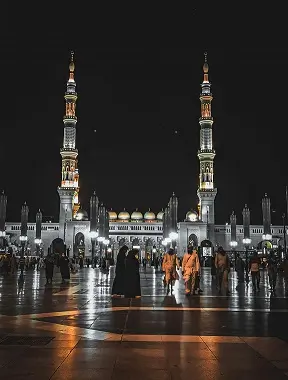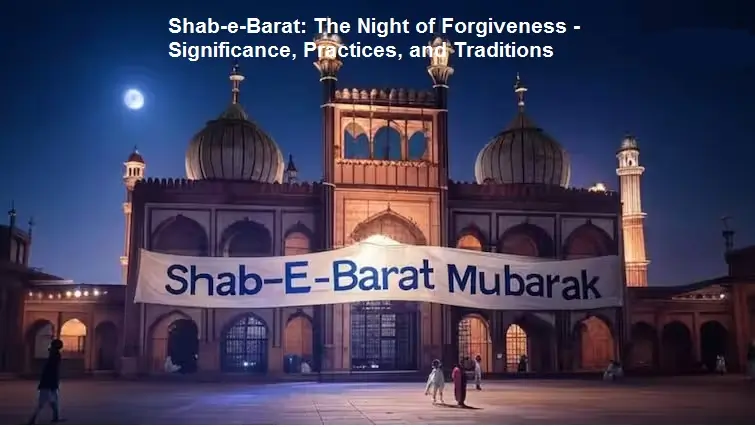Contents
Shab-e-Barat The Night of Forgiveness Significance Practices and Traditions
Shab-e-Barat, also known as the Night of Forgiveness or Mid-Sha’ban, is one of the most significant nights in the Islamic calendar. Observed on the 15th night of the month of Sha’ban, this night holds immense spiritual importance for Muslims worldwide. It is a time for reflection, prayer, and seeking Allah’s mercy and forgiveness.
What is shab e barat?
Shab-e-Barat, which translates to “Night of Records” or “Night of Deliverance,” is believed to be the night when Allah determines the destiny of all individuals for the coming year. It is a night when sins are forgiven, prayers are answered, and blessings are bestowed upon those who seek repentance.
Significance of Shab-e-Barat in Islam
- Divine Decree: It is believed that on this night, Allah writes the fate of every individual, including matters of life, death, and sustenance, for the upcoming year.
- Forgiveness: Shab-e-Barat is a night of mercy and forgiveness. Muslims are encouraged to repent sincerely and seek Allah’s pardon for their past sins.
- Remembrance of the Deceased: Many Muslims visit gravesites of their loved ones, offering prayers and reciting Quranic verses for their forgiveness and peace.

Religious Practices on Shab-e-Barat
- Night-long Prayers: Muslims spend the night in worship, offering special prayers (nafl), reciting the Quran, and making dua (supplications).
- Fasting: Some Muslims observe fasting on the 15th day of Sha’ban as a recommended practice.
- Charity: Giving to the poor and needy is highly encouraged as an act of kindness and purification.
- Seeking Forgiveness: It is a time for self-reflection, repentance, and asking Allah for forgiveness.
Cultural Traditions
- In countries like Pakistan, India, Bangladesh, and others, Shab-e-Barat is marked by lighting lamps, setting off fireworks, and communal gatherings.
- Families prepare special sweets and dishes, sharing them with neighbors and the less fortunate.
- Many visit cemeteries to pray for the deceased, creating an atmosphere of spiritual connection and remembrance.
Theological Perspectives
While Shab-e-Barat is widely observed, its significance and practices vary among different Islamic sects and scholars. Some emphasize its importance based on Hadiths (sayings of the Prophet Muhammad), while others view it as a cultural tradition with limited religious basis.
Date and Timing
Shab-e-Barat occurs on the 15th night of Sha’ban, the eighth month of the Islamic lunar calendar. The exact date varies each year in the Gregorian calendar, as the Islamic calendar is based on lunar cycles.
Spiritual Themes
Shab-e-Barat revolves around themes of mercy, forgiveness, and divine grace. It serves as a reminder for Muslims to renew their faith, strengthen their relationship with Allah, and seek spiritual purification.
Read More: Islamic

